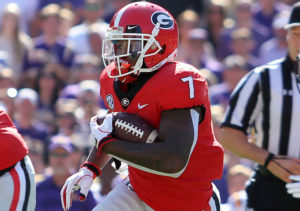Jan 9, 2024Effects of intermittent fasting on sports performance
Intermittent fasting has been a popular dietary pattern; notwithstanding its popularity, its impact on sports performance is unclear.
Various dietary patterns or protocols have emerged in recent years to reduce or amplify physical exercise-derived adaptations to improve performance.
 Intermittent fasting is one of these strategies, which has garnered renewed interest due to its health effects and body composition improvement in patients with different conditions.
Intermittent fasting is one of these strategies, which has garnered renewed interest due to its health effects and body composition improvement in patients with different conditions.
A recent article from News-Medical.net detailed the study published by Nutrients on the effects of intermittent fasting on sports performance.
Below is an excerpt from the News-Medical.net story.
The present study examined whether intermittent fasting affects professional athletes’ performance. The researchers searched the Web of Science, Scopus, and Medline databases using relevant terms for studies that assessed the effects of intermittent fasting in athletes or people engaging in physical activity.
Studies published in 2013 or later and written in the English and Spanish languages were eligible for inclusion.
Database searches identified 114 articles, 92 of which were retained after de-duplication. After title screening, 58 articles were excluded.
Finally, 25 studies were included in the systematic review. Participants in most studies were athletes. One study did not specify whether participants were athletes, while the remainder indicated that participants were physically active.
Most studies reported time-restricted feeding (TRF) with 16-hour fasting and eight-hour feeding windows. One study analyzed overnight fasting, while others examined fasting during Ramadan.
Studies implemented different tests to evaluate performance. Eight studies examined aerobic performance through the 20-minute cycling test, repeated sprints, 10-km test, and treadmill test (TMT).
Tests for anaerobic performance in six studies included stress tests, interval training, Wingate test, and sub-maximal test.
Muscle strength and power were evaluated in eight studies through endurance and maximal strength tests, average power, and peak power tests.
Fifteen studies examined body composition based on lean mass, fat mass, and anthropometrics. Intermittent fasting metabolically affects the composition of the body. This meant that intermittent fasting positively impacts performance, given that body weight reduction is beneficial.
It could represent an appropriate nutritional approach to reduce body fat and maintain muscle or lean mass. A 2021 study with 14 active female participants observed a significant decline in fat among participants who combined high-intensity training with TRF compared to those on a normal diet and high-intensity training.
» ALSO SEE: Study—Biomechanical traits of the best free throw shooters
Another study with 50 healthy participants reported that fasting and physical activity reduced their body fat percentage and body mass index (BMI).
Notably, the efficacy of intermittent fasting was related to the time of intervention and population. Medium- or long-term fasting was more effective than short-term fasting. Moreover, some studies combined caloric restriction with the follow-up of fasting.
Taken together, intermittent fasting does not negatively impact sports performance and affects body composition improvement.
Notably, there was a negative effect on performance during Ramadan; however, the case of Ramadan is different as the fasting period varies between 12 and 18 hours depending upon the location and season, and unlike other types of TRF, fasting time and restriction any liquid intake last from sunrise to sunset.
To read the full story from News-Medical.net, click here.



